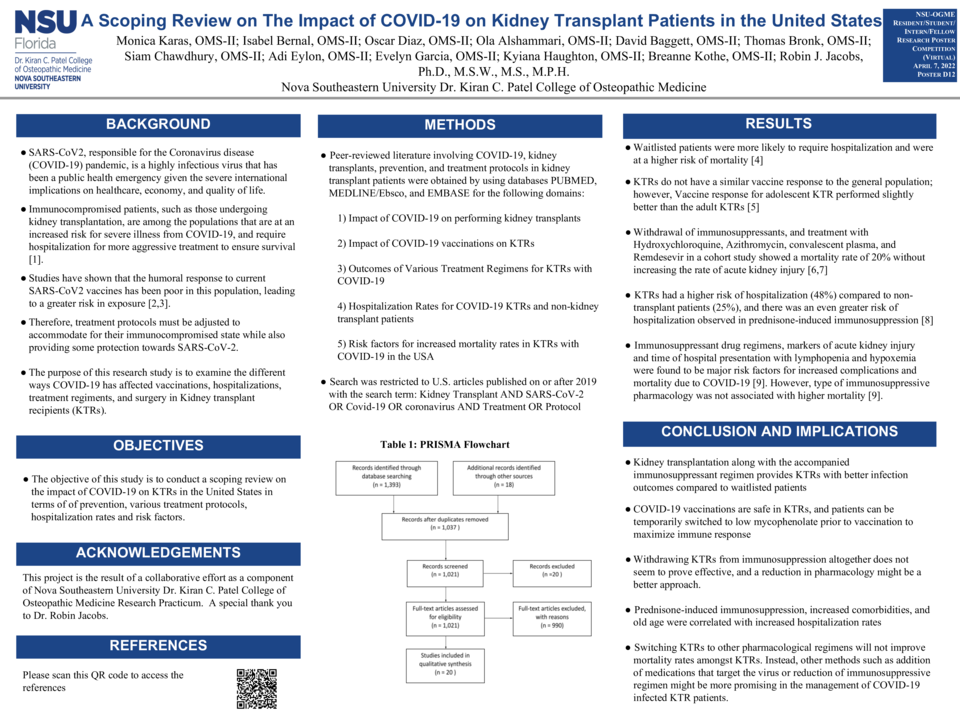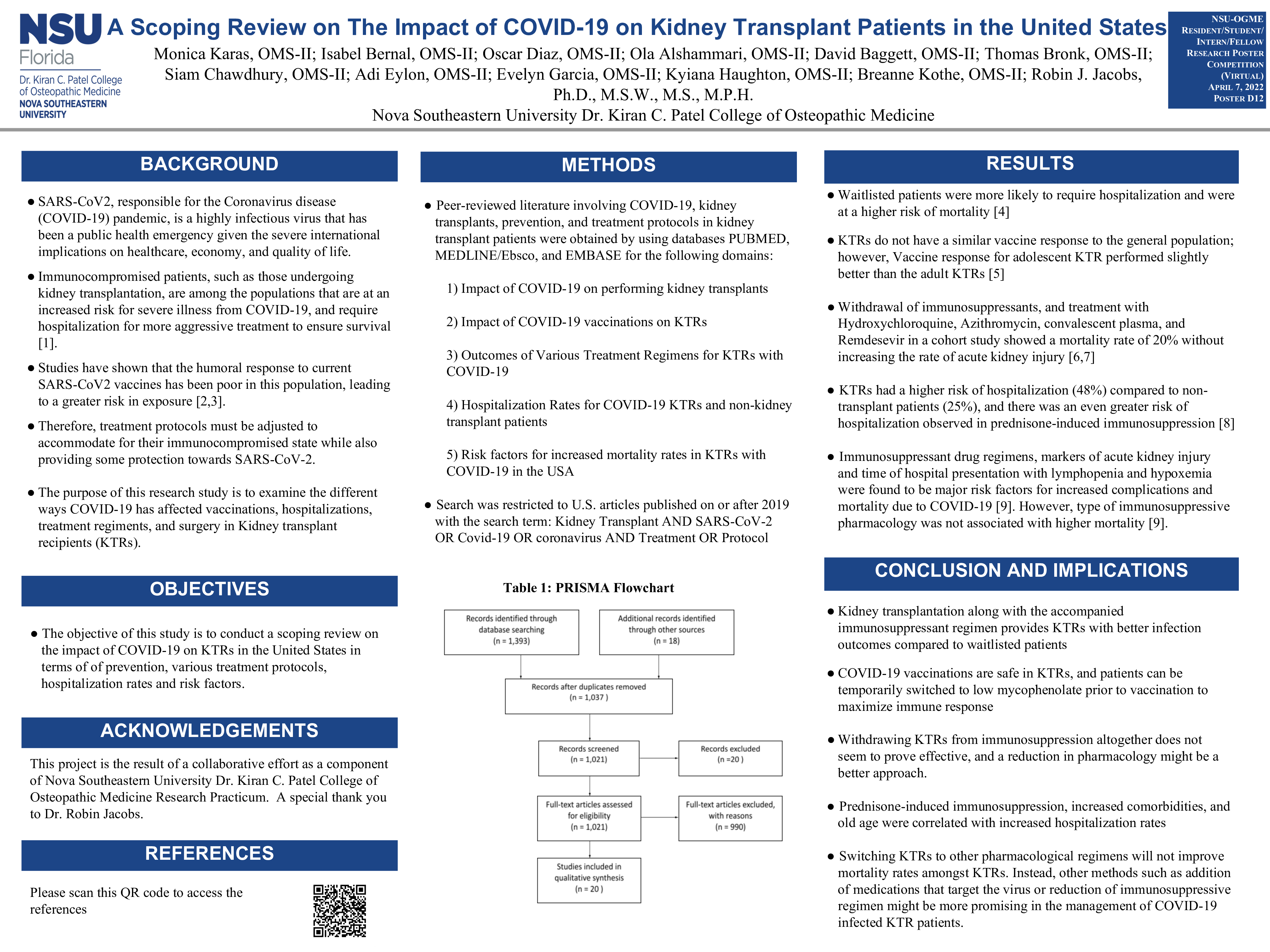A Scoping Review on The Impact of COVID-19 on Kidney Transplant Patients in the United States
Dr. Kiran C. Patel College of Osteopathic Medicine, Nova Southeastern University, Fort Lauderdale, USA
Monica Karas, Isabel Bernal, Medical StudentDr. Kiran C. Patel College of Osteopathic Medicine, Nova Southeastern University, Fort Lauderdale, USA
Isabel Bernal, Oscar Diaz, Medical StudentDr. Kiran C. Patel College of Osteopathic Medicine, Nova Southeastern University, Fort Lauderdale, USA
Oscar Diaz, Ola Alshammari, DODr. Kiran C. Patel College of Osteopathic Medicine, Nova Southeastern University, Fort Lauderdale, USA
Ola Alshammari, David BaggettDr. Kiran C. Patel College of Osteopathic Medicine, Nova Southeastern University, Fort Lauderdale, USA
David Baggett, Thoma BronkDr. Kiran C. Patel College of Osteopathic Medicine, Nova Southeastern University, Fort Lauderdale, USA
Thoma Bronk, Siam Chawdhury, Medical StudentDr. Kiran C. Patel College of Osteopathic Medicine, Nova Southeastern University, Fort Lauderdale, USA
Siam Chawdhury, Adi Eylon, Medical StudentDr. Kiran C. Patel College of Osteopathic Medicine, Nova Southeastern University, Clearwater, USA
Adi Eylon, Evelyn Garcia, Medical StudentDr. Kiran C. Patel College of Osteopathic Medicine, Nova Southeastern University, Fort Lauderdale, USA
Evelyn Garcia, Kyiana Haughton, Medical StudentDr. Kiran C. Patel College of Osteopathic Medicine, Nova Southeastern University, Fort Lauderdale, USA
Kyiana Haughton, Breanne Kothe, DO, Resident PhysicianDr. Kiran C. Patel College of Osteopathic Medicine, Nova Southeastern University, Fort Lauderdale, USA
Breanne Kothe, Robin J. Jacobs, Professor, MPH, PhDMedical and Behavioral Research; Health Informatics; Medical Education, Nova Southeastern University, Fort Lauderdale, USA
Robin J. Jacobs





